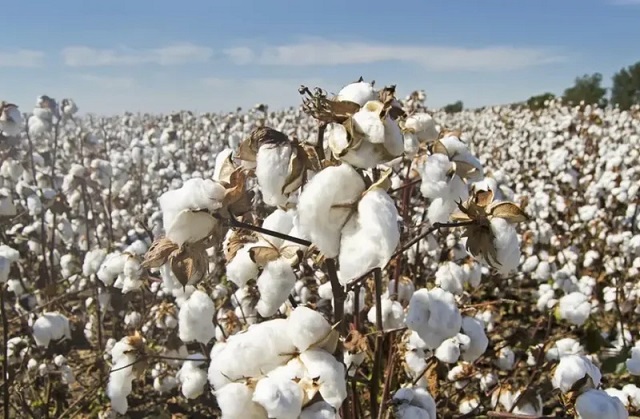KARACHI — The cotton market in Pakistan is showing encouraging signs of stability, with increased business activity and a rise in spot rates. The Karachi Cotton Association’s Spot Rate Committee raised the spot rate by Rs 300 per maund, closing at Rs 16,500, signaling a positive trend for both traders and growers.
Several ginning factories in Sindh and Punjab have partially resumed operations, processing around 20,000 to 25,000 bales of phutti (seed cotton) so far this season. In Sindh, cotton prices ranged between Rs 16,300 and Rs 16,700 per maund, while Punjab saw prices between Rs 16,800 and Rs 17,200. Phutti prices also saw upward movement, trading at Rs 7,700 to Rs 8,500 per 40 kg in Sindh and Rs 8,000 to Rs 8,800 in Punjab.
However, the sector remains under strain following recent budget decisions. The continuation of sales tax on cotton, phutti, and related by-products, combined with tax exemptions for imported cotton, has caused concern among industry stakeholders. Ehsan ul Haq, Chairman of the Cotton Ginners Forum, said these policies negatively impact local production and may lead to more factory closures.
“The high taxes and policy imbalances are making it difficult for growers and ginners to sustain operations,” Haq explained. He warned that over 800 ginning factories and 1,000 oil mills are already inactive, with more closures expected if current conditions persist.
Agricultural experts from the Central Cotton Research Institute (CCRI) Multan have issued detailed crop management recommendations valid through June 30 to help growers combat pest threats and improve yields. Pest control, irrigation, and nutrient management were highlighted as critical factors for the season.
The combination of high input costs, falling cotton prices, and budgetary challenges is expected to reduce cotton sowing and overall production this year. Industry sources indicate a potential drop in demand of about one million bales, which could have far-reaching effects on the textile sector and Pakistan’s economy.











